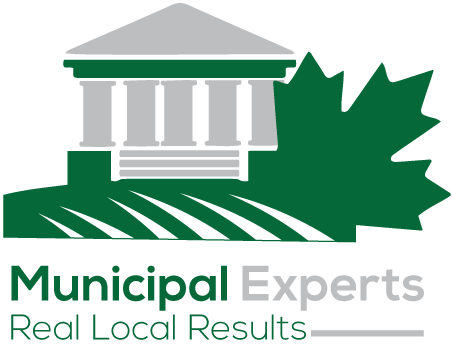 Do you ever feel like you are lost in a dense financial forest?
Do you ever feel like you are lost in a dense financial forest?
Municipalities are feeling the pinch again, as grant funding erodes (into the double digits) at both the Provincial and Federal levels and companies default on their municipal taxes.
Do you need to be a magician to balance municipal finances? What strategies and approaches can you take to weather this and the next fiscal storm?
Believe it or not, you have number of choices to consider and you can make the best out of a bad situation.
Here's the Cheat Sheet:
- Look into alternative financing. Big-ticket equipment (think graders, and heavy equipment) come to mind. Rather than buying outright, consider options to scale major purchases over several years. This can help with the purchase of capital, while always making sure in advance that new equipment is really necessary. The cost of financing is very low, especially if you use Alberta Capital Financing through the province.
- Reduce the number of lease agreements that you hold. The classic example are photocopiers that come with expensive service agreements. The cost of buying outright for these items has come down while in the last 10 years as quality and reliability has improved. Yes, you may have to pay for service, but you will only pay when you need it instead of a monthly insurance policy against breakdowns.
- Move to the Cloud. Software purchases often come in 3- 5 year waves and owning your software outright is just so 1990's. Not only does putting your software on the cloud save you outrageous costs every 3-5 years, it reduces traditional IT servicing and maintenance costs because those costs are built-in. This makes sense in IT because the rates of depreciation is so high. Cloud systems also make it possible to acquire computers that are more affordable because they only need the ability to run through a browser window.
- Think More Open Source. Do you really need the biggest names in expensive software? Maybe. Certain aspects of municipal operations are very specialized (GIS systems, Utility reading, Recreation management are good examples) and deserving of a higher price tag. However, there are also opportunities to look at free or low cost software (for website management, like WordPress, graphic design with Canva and document creation through Google Docs).
- Automation. Consider your business processes and the necessary levels of service. Are utility and tax payments easy to do online? Do you need someone at the front counter to hand out a printed brochure, or can your website and social media provide instant information that doesn't require time on the phone, or an in person visit. Of course it's great to have awesome in-person and telephone service, but you can reduce staff time dealing with basic information by making the essentials easy to find in electronic form. Not only does this save time, it saves paper (and the cost of paper) and reduces our environmental impact.
- Partnerships and Shared Services. As you have been going through a myriad of options while talking to neighbouring municipalities, maybe you can find ways to share major equipment or services that can be spread over an additional, municipality. Do you really need a vacuum truck, or could you share one with a neighbour through a shared service agreement? This can also hold true for regional service delivery in various infrastructure related areas like road building, utility services (water, wastewater, solid waste in particular) but the limits don't have to stop there. Municipalities are considering many options, airports, fire and protective services, recreation, economic development, tourism and more. Every municipality is unique and finding ways to share costs can work in many situations.
- Service Capacity Reviews. Are you using the same service and organizational model as you were in the 80's? Does it really work? A Service Capacity Review may cost a few dollars to bring in an consultant to review your structure and come-up with recommendations, but it may be a worthwhile investment. The best Service Capacity Reviews consider what your customers really think and will challenge you to reconsider what you are doing and why. If you are busy doing what you've always done without thought to making things more efficient, this will give you the mental space to make some tough decisions without any upfront bias.
- Defer Big Ticket Capital Purchases, maybe you can Rent? Is the Fire Chief asking for another new fire truck? If I can put that really sarcastically, that's shocking! While spending over a million dollars on a new fire truck may increase morale for your firefighters, it could extinguish your finances. Make sure that major equipment is really necessary by checking-in and knowing exactly how many hours you use big ticket items. If the answer is only a handful of times per year, you may have an opportunity to rent and forego the cost of ownership.
- Staffing Options and Alternatives. Always the biggest cost of any municipal operation, it's time to get real about how staff are structured. Do you have too many staff in one area while another area is the land of the thumb twiddlers? Do you have administrative positions that could add or subtract workload? Can you contract certain services so that you only pay for what you really need? Are staff consistently standing at a service counter that no one visits? Answering these questions can help you to streamline your staffing costs while also improving organizational health.
Take Away
Nobody said it was going to be easy, but with a little bit of thought and analysis, plenty of consultation with staff, the public and council you will find the best ways forward in this year's budget. Following the cheat sheet should help you get there and meeting your true needs for the long-haul.
Good luck.
